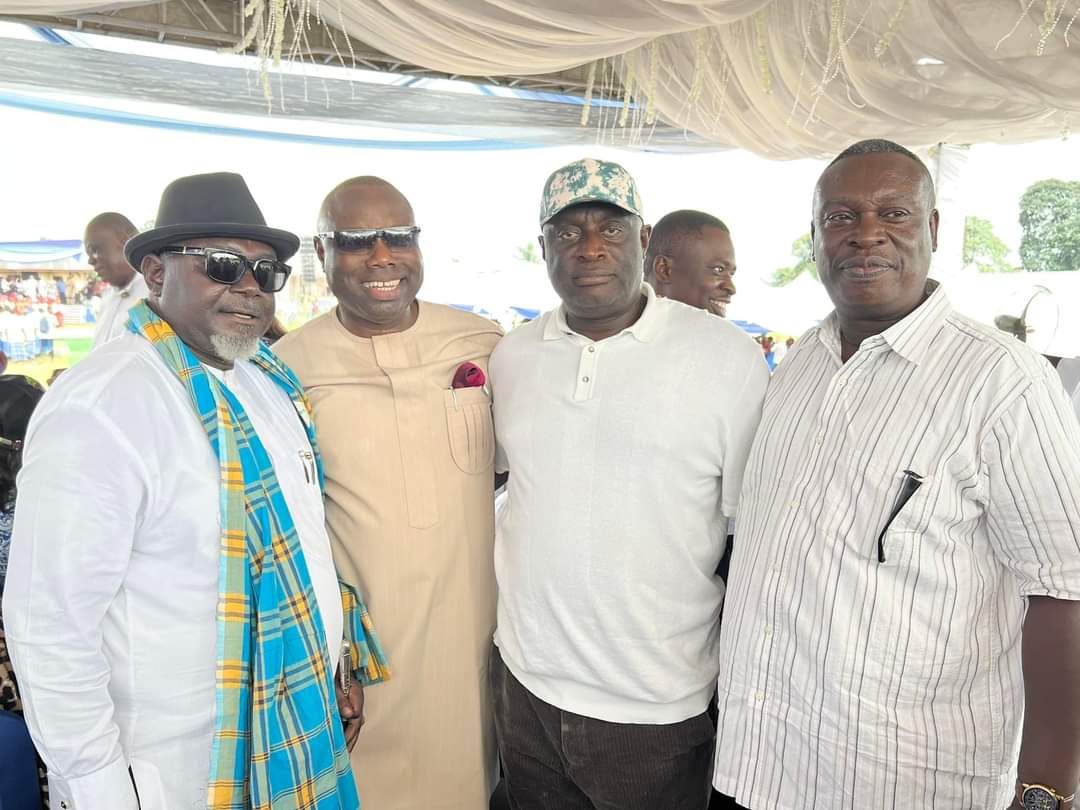Niger Delta
VC Blames Union Leaders For Varsity’s Strikes

Vice Chancellor of Edo State-owned Ambrose Alli University (AAU), Ekpoma, Prof. Sonnie Adagbonyin, has blamed the incessant strikes in the institution on union leaders’ refusal to understand the peculiarities of the university’s operational system.
The VC, who said this in an interview with The Tide’s source in Ekpoma, stated that the state government had never reneged on its financial obligations to the institution.
The source reports that staff unions of the institution embarked on strikes over claim of unpaid salary arrears, among other demands, before the State Government suspended their activities on campus in May.
Adagbonyin explained that the State Government had never failed to release the monthly subvention to the institution.
“We must understand that like all universities, AAU has its own peculiar system of operations. It relies on subvention from the State Government, while the university’s Management augments from fees paid by students.
“And we must emphasise that government has never failed in bringing its own component of the subvention. There is no month that government has reneged in paying subvention to the university.
“The union’s quarrel is that it is not as much as it used to be. But they have also failed to realise that within the university system, our capacity to discipline the resources and all the things that we do also have a role to play in sustaining us as a university.
“That has been the missing link. People just look at the amount government brings and begin to complain. How can this be enough to pay this or salary and can this settle the whole issues on ground.
“I want to say that what has always created a backlog of unpaid salaries is not what government brings. It is not the IGR the university generates. It is the consistency in the fragmentation of academic calendar.
“And I think that it is what offended government to the extent suspending activities of unions in the institution.
“For me, I like the spirit of unionism because of its principle of fundamental rights to take care of members’ welfare.
“But here in AAU, strikes were no longer ideologically centered. Strikes became politicised, which began to negatively affect both academic and social space.
“I hope that unions will begin to see that it is not the number of strikes that make a university grow, but the capacity to recognise that developmental strides can be made when we allow the system work the way it should work”, the VC said.
He VC urged the students to be the ombudsman, challenge and criticise but should know that it couln’t be an alternative to management.
“You can’t begin to take the roles of management. Management is management and unions are unions; Unions should unionise and should allow management to manage affairs of the institution.
“The roles will obviously become conflicting when every decision management takes is challenged by unions.
“He said unions were more important in fighting for members’ welfare, ensuring that there is due diligence in the system.’’
According to the VC, “no responsible management worth its salt should be afraid of that role. But you must know your limitations as unions because you must first subject yourself to constituted authority.
“But when you now begin to think you are the authority because you belong to a union, of course, there will be conflict which will generate to a situation of reckless irresponsibility”.
Meanwhile, the school’s management said it had lifted the suspension on two of its principal staff facing allegations of abuse of office and financial impropriety.
This is contained in a statement by its institution’s Public Relations Officer, Mr Larry Isiraoje, and made available to The source in Ekpoma.
It said the School’s Special Intervention Team had directed management to lift the suspension on the Provost, College of Medicine and the Acting Dean, faculty of Basic Medical Sciences.
It, however, added that “the investigation of the allegations of abuse of office and financial impropriety made against them is ongoing.”
Niger Delta
Stakeholders In Delta Seek Stronger GBV Action, Women’s Leadership

Niger Delta
C’River Suspends Taskforce Activities Over Drivers’ Protest

Niger Delta
A’Ibom Assembly Urges More Private Investments In Agriculture

-

 News4 days ago
News4 days agoAmend Constitution To Accommodate State Police, Tinubu Tells Senators
-

 Politics4 days ago
Politics4 days agoSenate Urges Tinubu To Sack CAC Boss
-
Business4 days ago
Crisis Response: EU-project Delivers New Vet. Clinic To Katsina Govt.
-
Business4 days ago
President Tinubu Approves Extension Ban On Raw Shea Nut Export
-

 News4 days ago
News4 days agoDisu Takes Over As New IGP …Declares Total War On Corruption, Impunity
-
Business4 days ago
President Tinubu Extends Raw Shea Nuts Export Ban To 2027
-
Business4 days ago
Fidelity Bank To Empower Women With Sustainable Entrepreneurship Skills, HAP2.0
-
Sports4 days ago
NDG: Rivers Coach Appeal To NDDC In Talent Discovery

